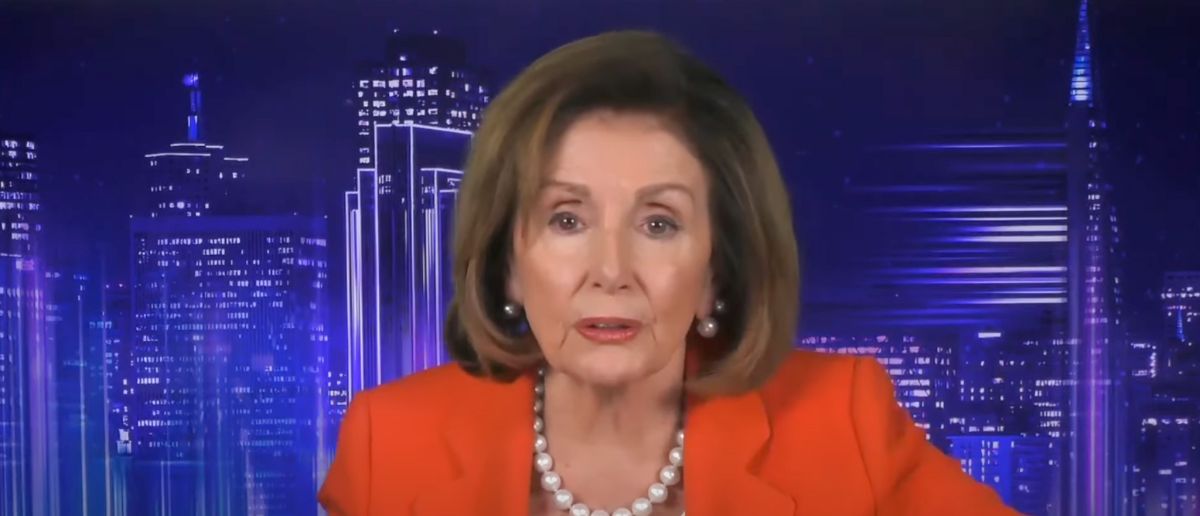
Donald Trump has hit rocky roads. What happens next is critical.
And now the U.S. Senate has thrown President Trump a major curveball.
Trump’s Triumph: Senate Passes Bold Budget Blueprint to Secure America’s Future
The U.S. Senate voted early Saturday morning to approve a budget blueprint that locks in the president’s vision for America. With a 51-48 tally, the measure sailed through largely along party lines, cementing Trump’s 2017 tax cuts as a permanent fixture and pumping $175 billion into border security to fortify the nation’s defenses. This decisive move sets the stage for the House to take up the fight, proving that the Trump administration’s priorities are charging full steam ahead.
The vote wasn’t without drama. Republican Senators Rand Paul of Kentucky and Susan Collins of Maine broke ranks, siding with Democrats to oppose the plan. But their resistance couldn’t derail the momentum. The Senate’s approval came at around 2:30 a.m. after a grueling “vote-a-rama,” where Democrats tried to trip up Republicans with a barrage of amendments on hot-button issues like entitlement spending, government efficiency, and Trump’s tariffs. The GOP stood firm, brushing off the political traps and keeping their eyes on the prize.
Senate Republicans are now poised to use budget reconciliation—a powerful tool that sidesteps the filibuster—to ram through Trump’s legislative goals with a simple majority. This strategic play ensures that the president’s promises to the American people don’t get bogged down in endless Senate gridlock. And despite Democrat fear-mongering, GOP leaders made it crystal clear: no one’s touching your Medicare or Medicaid.
“The argument is going to be made that we’re going to hurt all kinds of different people tonight in different ways,” Republican Idaho Senator Mike Crapo declared from the Senate floor Friday evening. “But the reality is that’s not going to happen. The President has been very clear any reforms to Medicare or Medicaid must not reduce patient benefits.” That’s a promise straight from the top, and the Senate’s vote proves they’re sticking to it.
Interestingly, the Democrats’ flurry of amendments didn’t even touch border security or Trump’s deportation plans—perhaps a sign they know the American people are behind the president on this one. But not everyone in the GOP was celebrating. Senator Rand Paul, ever the fiscal hawk, slammed the blueprint for jacking up the debt ceiling by $5 trillion. “If we expand the debt at $5 trillion that will be an expansion of the debt equal to or exceeding everything that happened in the Biden years,” Paul warned Friday.
“Republicans who vote for this will be on record as being more fiscally liberal than their counterparts. They will vote to borrow more money than the Democrats have ever borrowed.” The nonpartisan Committee for a Responsible Budget piled on, estimating the plan could add up to $5.8 trillion to the deficit—a figure they called “historically unprecedented in its fiscal irresponsibility.”
Senate GOP brass shrugged off the criticism, arguing the bill’s modest spending cuts give them room to maneuver while staying within reconciliation rules. But over in the House, some conservatives aren’t buying it. “If the Senate can deliver real deficit reduction in line with or greater than the House goals, I can support the Senate budget resolution,” House Freedom Caucus Chairman Andy Harris said Saturday.
If the Trump tax cuts expire—like Senate Democrats want—our economy will suffer.
📉 GDP would shrink by $1.1 trillion
📉 Employees would lose $540 billion in compensation
📉 6 million jobs would be put at risk
— Senate Republicans (@SenateGOP) April 2, 2025
“However, by the Senate setting committee instructions so low at $4 billion compared to the House’s $1.5 to $2 trillion, I am unconvinced that will happen.” House Budget Committee Chairman Jodey Arrington didn’t mince words either: “The Senate response was unserious and disappointing, creating $5.8 trillion in new costs and a mere $4 billion in enforceable cuts, less than one day’s worth of borrowing by the federal government.”
The House had originally drafted a leaner budget that didn’t lock in Trump’s tax cuts permanently—a sticking point for the president and Senate Republicans. To fix that, the Senate cleverly scored the tax cut extension as deficit-neutral, arguing it’s just a continuation of current policy. “Americans should not have to live in fear of a tax hike every few years,” Senator John Thune thundered from the floor Thursday. It’s a common-sense stance that puts money back in Americans’ pockets for good. Arrington, though, wasn’t impressed, griping that the Senate’s scoring dodge sets a “dangerous precedent” without matching cuts.
None of that fazes President Trump, who’s throwing his full weight behind the Senate’s plan. “Every Republican, House and Senate, must UNIFY,” he roared on Truth Social Wednesday. “We need to pass it IMMEDIATELY!” With the commander-in-chief’s blessing, House lawmakers are under intense pressure to fall in line when they reconvene in Washington. This budget isn’t just numbers on a page—it’s a battle cry for an America First future, and the Senate’s vote shows Trump’s still calling the shots. The House better buckle up and get on board, because the Trump train isn’t slowing down.
Tariffs Complicate An Already Complicated Picture For U.S. Economy
On the backdrop of this fight over taxes and U.S. federal government spending is the tariffs fight that Donald Trump has been more than content to bring to the forefront of the debate in Washington, D.C. He has been adamant that the United States needs to stand its ground and earn back some of the manufacturing market that has been sold off to the rest of the world over the past several years.
In the 1970s, U.S. manufacturing was responsible for almost 30% of the total U.S. annual GDP. Today, it sits at an awful 9%. Simply put, there are fewer medium, low, and unskilled labor jobs available for Americans. Meanwhile, living expenses skyrocket as expenses are tailored towards the white-collar class and real estate moguls.
Passing corporate tax cuts, as Donald Trump and Republicans in Congress are pushing for, could allow for more corporations to open up more manufacturing in the United States than in recent years. Donald Trump’s first term saw a return of many manufacturing jobs that had been lost for years, and many economists agree the corporate tax cuts and tariffs of his first term were responsible in part for that.
Stay tuned to the DC Daily Journal.





